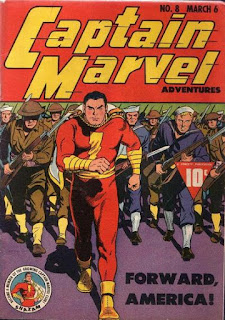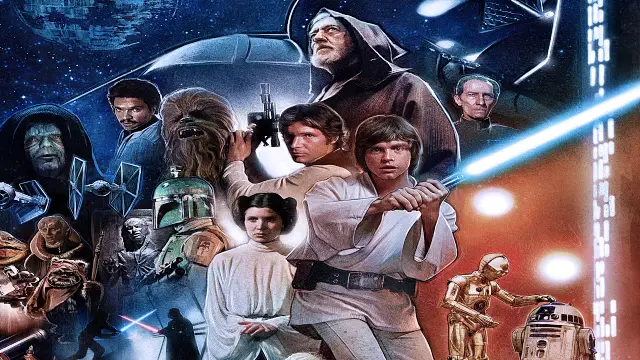Have you ever stopped to think about how much of today’s pop culture is rooted in the past? From Star Wars to Batman, many of the stories we love are decades old, if not older. But why is that? Why are we still clinging to the myths of the 20th century instead of creating new ones? And what does this say about our world today?
Let’s take a journey through the evolution of pop culture, exploring how it’s shaped by history, technology, and the ever-changing tides of global politics. Along the way, we’ll ask some tough questions about creativity, generational shifts, and the future of storytelling.
Golden Age of Pop Culture
Think back to the late 1970s. Star Wars burst onto the scene, revolutionizing cinema and capturing the imaginations of millions. It wasn’t just a movie—it was a cultural phenomenon. But why did it resonate so deeply?
Part of it was timing. The 1970s were a turbulent decade, marked by economic instability, political scandals, and the lingering shadow of the Vietnam War. People were hungry for escapism, and George Lucas delivered. Star Wars was a perfect blend of old and new, drawing on timeless myths while pushing the boundaries of special effects.
But it wasn’t just Star Wars. The 1970s and 1980s were a golden age for pop culture, giving us iconic franchises like Superman, Batman, and Star Trek. These stories weren’t just entertainment; they were reflections of the times, grappling with themes of heroism, morality, and the struggle between good and evil.

Creators Behind the Myths
What made these stories so enduring? A big part of it was the creators behind them. Stan Lee, Jack Kirby, and Steve Ditko weren’t just writers and artists—they were visionaries. They infused their work with ideas, from Lee’s sunny humanism to Kirby’s cosmic mysticism to Ditko’s passionate idealism.
These creators were shaped by their own experiences, many of which were rooted in times of crisis. World War II, in particular, had a profound impact on the generation that gave us so many of our modern myths. Veterans like Rod Serling (creator of The Twilight Zone) and Gene Roddenberry (creator of Star Trek) brought a sense of urgency and moral clarity to their work, born out of the chaos of war.
But here’s the question: Where are the modern equivalents of these creators? Why does it feel like we’re stuck in a loop, endlessly recycling the same stories instead of creating new ones?
Rise of Nostalgia
One reason is nostalgia. In an increasingly fractured and uncertain world, people crave the comfort of the familiar. That’s why we keep getting sequels, reboots, and spin-offs. Star Wars: The Force Awakens, The Avengers, Jurassic World—these films dominate the box office because they tap into our collective memories.
But nostalgia can only take us so far. At some point, we need new stories, new myths to reflect the challenges of our time. And that’s where things get tricky.
Creative Drought
Let’s be honest: pop culture today feels stagnant. Sure, there are exceptions—shows like The Walking Dead or Stranger Things—but even these are often rooted in older ideas. The Walking Dead, for example, is essentially George Romero’s Dawn of the Dead on a larger scale.
So why the creative drought? Part of it is economic. The entertainment industry is risk-averse, preferring to invest in sure bets rather than untested ideas. But there’s also a deeper issue: a lack of generational cohesion.
The creators of the 20th century were shaped by shared experiences—World War II, the Cold War, the Civil Rights Movement. These events gave them a common language, a set of themes to explore. Today, our experiences are more fragmented, shaped by technology and the rise of globalism.
Impact of Globalism
Speaking of globalism, it’s hard to overstate its impact on pop culture. On one hand, it’s brought us closer together, allowing stories to spread across borders like never before. On the other hand, it’s created a world of war, social chaos, and economic inequality.
Countries like China and Russia are challenging U.S. dominance, leading to a new kind of Cold War. At the same time, technology has transformed the way we consume media, creating echo chambers and fueling polarization.
In this environment, it’s no wonder that pop culture feels stuck. How do you create unifying myths in a world that’s increasingly divided?
Role of War
Historically, war has been a catalyst for creativity. Many of the creators we admire—Stan Lee, Rod Serling, Gene Roddenberry—were shaped by their experiences in World War II. War forces people to confront big questions about life, death, and morality, and these questions often find their way into art.
But we live in a post-conscription era, where war is a distant reality for most people. This distance makes it harder to create stories that resonate on a deep, universal level.
That said, war may still play a role in shaping the myths of the future. If global tensions continue to rise, we could see a new wave of creativity born out of crisis. But what form will it take?
Future of Pop Culture
So, where do we go from here? Will we continue to recycle the same stories, or will a new generation rise up to create something truly original?
The answer may depend on the challenges we face. If history is any guide, times of crisis often lead to bursts of creativity. Whether it’s a global conflict, an economic collapse, or a technological revolution, the next wave of pop culture will likely be shaped by the events of our time.
But there’s also the possibility that our current myths will fade away, replaced by older, more primal stories. In times of upheaval, people often turn to the myths of their ancestors, seeking comfort and guidance in the past.
Final Thoughts
We’re living in a time of transition, caught between the myths of the 20th century and the uncertain future. Pop culture, like the world itself, is in flux.
But here’s the thing: change is inevitable. The stories we tell today may not endure, but they’ll pave the way for the myths of tomorrow. And who knows? Maybe the next Star Wars or Batman is already out there, waiting to be discovered.
In the meantime, let’s celebrate the stories we have, while keeping an eye on the horizon. After all, the best myths aren’t just about the past—they’re about the future.
Pop culture is more than just entertainment; it’s a reflection of who we are and where we’re going. As we navigate the challenges of the 21st century, let’s hope that the next generation of creators will rise to the occasion, giving us new stories to inspire, challenge, and unite us. What do you think the future of pop culture holds?

